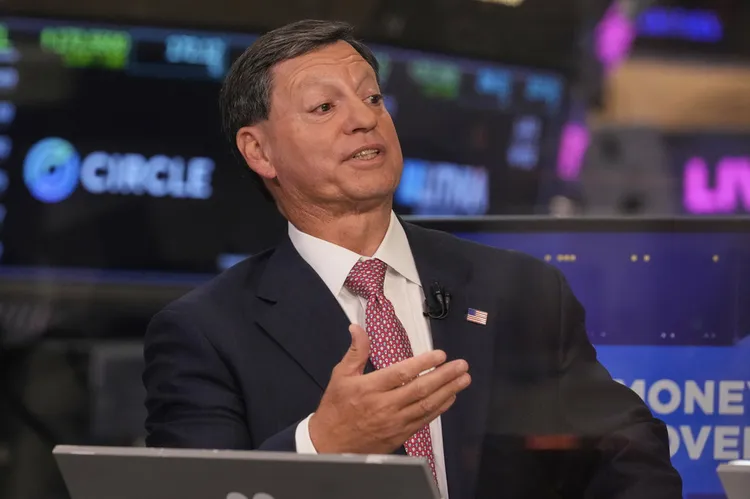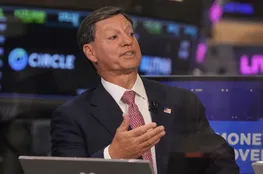The Trump administration continues to navigate the complexities of government staffing with a recent, and arguably unconventional, appointment: Frank Bisignano has been named CEO of the Internal Revenue Service (IRS), while simultaneously retaining his position as Commissioner of the Social Security Administration (SSA). This dual role, a first in the history of these agencies, raises significant questions about efficiency, accountability, and the administration’s approach to government operations. Bisignano’s appointment follows a pattern observed throughout Trump’s tenure – a reliance on individuals with backgrounds in the private sector, often lacking direct experience in government oversight, to lead key agencies. This strategy frequently bypasses the traditional Senate confirmation process, leading to concerns about transparency and the potential for conflicts of interest. The rationale offered by the Trump administration – that the IRS and SSA share common technological and customer service goals – feels like a convenient justification for a move that appears primarily driven by a desire to consolidate power and control over vast databases.
Bisignano’s appointment follows a pattern observed throughout Trump’s tenure – a reliance on individuals with backgrounds in the private sector, often lacking direct experience in government oversight, to lead key agencies. This strategy frequently bypasses the traditional Senate confirmation process, leading to concerns about transparency and the potential for conflicts of interest. The rationale offered by the Trump administration – that the IRS and SSA share common technological and customer service goals – feels like a convenient justification for a move that appears primarily driven by a desire to consolidate power and control over vast databases. The implications of this arrangement are considerable, particularly given Bisignano’s past performance at the SSA. His tenure was marked by instances of the agency misleading the public regarding nonexistent phone service issues, a lapse in accountability that raises serious questions about his judgment and oversight capabilities. Furthermore, the appointment highlights a broader trend of unqualified individuals holding multiple, high-level positions within the administration, often without undergoing rigorous Senate scrutiny. Bisignano’s background, including his previous role as CEO of companies like Fiserv, suggests a focus on technological solutions and data management – a potentially valuable skill set, but one that needs to be carefully balanced with the responsibilities of overseeing critical government programs.
Bisignano’s appointment follows a pattern observed throughout Trump’s tenure – a reliance on individuals with backgrounds in the private sector, often lacking direct experience in government oversight, to lead key agencies. This strategy frequently bypasses the traditional Senate confirmation process, leading to concerns about transparency and the potential for conflicts of interest. The rationale offered by the Trump administration – that the IRS and SSA share common technological and customer service goals – feels like a convenient justification for a move that appears primarily driven by a desire to consolidate power and control over vast databases. The implications of this arrangement are considerable, particularly given Bisignano’s past performance at the SSA. His tenure was marked by instances of the agency misleading the public regarding nonexistent phone service issues, a lapse in accountability that raises serious questions about his judgment and oversight capabilities. Furthermore, the appointment highlights a broader trend of unqualified individuals holding multiple, high-level positions within the administration, often without undergoing rigorous Senate scrutiny. Bisignano’s background, including his previous role as CEO of companies like Fiserv, suggests a focus on technological solutions and data management – a potentially valuable skill set, but one that needs to be carefully balanced with the responsibilities of overseeing critical government programs. The fact that Bisignano reportedly had to Google ‘what is the SSA commissioner’ when offered the job further underscores the lack of institutional knowledge and understanding within the administration. This seemingly casual approach to leadership raises concerns about the agency’s ability to effectively address complex challenges and prioritize the needs of the American people. Adding to the complexity, Bisignano’s appointment follows the departure of Billy Long, a former auctioneer known for advising business owners on tax avoidance strategies – a role that demonstrates a troubling alignment between political appointees and potentially unethical practices.
The revolving door of leadership within the Trump administration, with seven individuals holding the head of the IRS role since 2017, is a significant cause for concern. This rapid turnover suggests a lack of stability and a willingness to prioritize political considerations over qualified leadership. While Bisignano was confirmed as head of the SSA through a party-line vote, the likelihood of the Senate revisiting this appointment for the IRS remains uncertain, given the administration’s history of circumventing established procedures. Ultimately, Frank Bisignano’s dual role represents a strategic maneuver designed to control access to immense data resources, potentially for purposes beyond simply improving government services. This appointment, coupled with the broader pattern of unconventional staffing decisions, reflects a fundamental challenge to the principles of good governance and raises serious questions about the future direction of the executive branch.
























